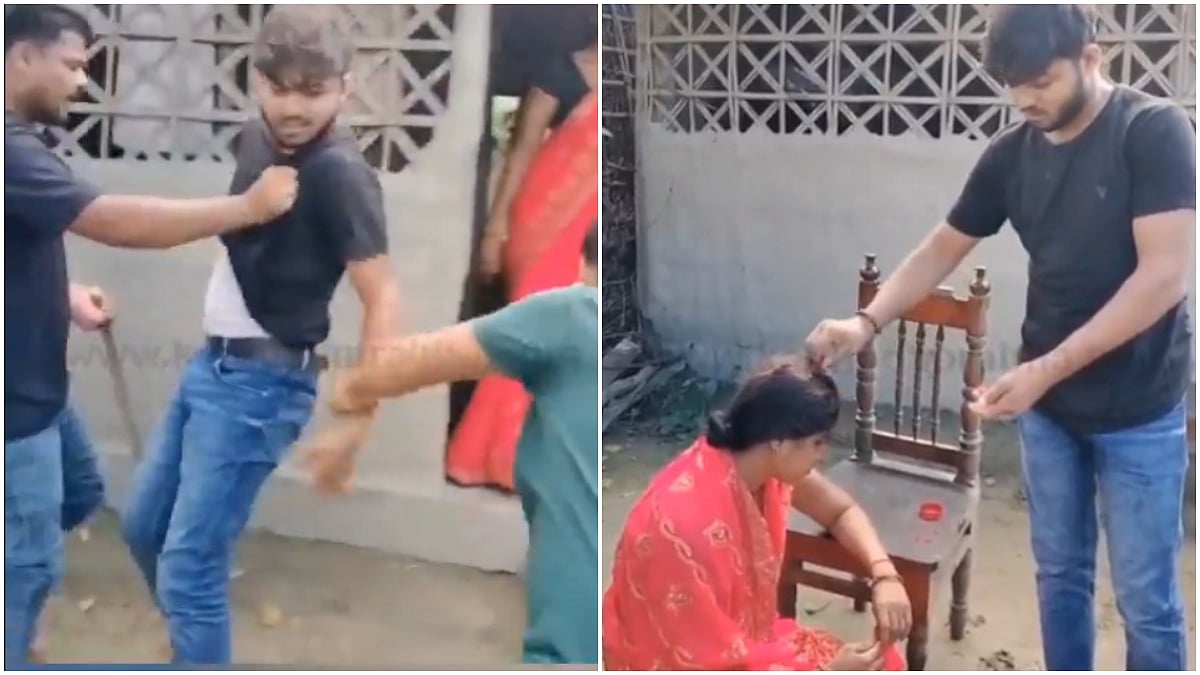Jet Airways founder Naresh Goyal, accused of masterminding a Rs 538 crore fraud on Canara Bank, recently made a poignant wish with folded hands and moist eyes to the judge in a Mumbai special court to let him die in the Arthur Road prison rather than be provided medical treatment for his acute kidney malfunctioning. What he was pleading for, rather incoherently, was mercy killing without asking for it in so many words. His sinking spirit and plight are aggravated by the ill-health of his wife and daughter. The judge promised him medical help. What more could he do?
In 2014, the Supreme Court had given the Ansal brothers an option of depositing Rs 100 crore to offset the proposed enhancement of the imprisonment for being responsible for the ghastly Delhi Uphaar Cinema fire tragedy in which several innocent lives were lost due to lack of fire escape routes. The brothers latched on to the opportunity and offered to deposit Rs 30 crore each to construct a trauma centre to expiate their guilt and assuage their conscience. They indeed walked their talk though the media and the commentariat were unsparing in their criticism of the special treatment to the wealthy geriatrics.
In the US, many states create special cells and provide other appropriate facilities for geriatric prisoners without giving them reprieve or a tradeoff between money and prison. Incidentally, the redoubtable Rajat Gupta — ex-CEO of McKenzie and Co, the most famous NRI of his times convicted in insider trading fraud in the US — offered to do social service in Ghana to ameliorate the poverty of its people while at the same time atoning for his avarice, but the Manhattan judge was not amused. Public prosecutor Preet Bharara — also of Indian stock — snubbed Gupta for pleading for a special Mother Teresa justice system that simply didn’t exist in the US.
The justice system is traditionally classified as retributive, punitive, reformative and compensatory or restorative. Retributive is the most primitive form of justice, though almost extinct except in certain pockets of the world. An eye for an eye is its leitmotif. The dreaded Saudi dispensation of chopping off the finger that stole is its extension and relic. Death sentence for cold-blooded murder in rarest of rare cases under the Indian criminal justice system is repulsive and anathema to the abolitionists with almost 50% of the states in the US and practically all of Europe abolishing it. In its crudest form, restorative justice too smacks of retributive justice when the one killing a person is ordered to marry the widow of the deceased just as some khap panchayats in India order a rapist to marry the woman whose modesty he had the gall to outrage. Be that as it may, the four systems are not drawn into watertight compartments and in fact overlap with each other except for reformative justice that specially exists for juvenile criminals who instead of being asked to rub shoulders with hardcore criminals inside normal prisons are put into special prisons where they are trained to be better human beings. For financial crimes, disgorgement which is a species of restorative justice has been found to be the most effective — the one who has swindled must cough it up! The Fugitive Economic Offences Act 2018 of India does precisely that — confiscating both the Indian and foreign properties of the fugitives.
None of the systems however defer to senior citizen prisoners or convicts, though most of the civilised world defers to juveniles who are believed to have gone astray and need to be addressed more sympathetically. While pediatrics and geriatrics generally crave for leniency in all walks of life, sometimes women prisoners also melt the hearts of people. Sonia Gandhi, the widow of assassinated Prime Minister Rajiv Gandhi, showed magnanimity and grace by getting Nalini, one of the masterminds, released prematurely before completing her sentence though many carped at the gesture as interference with the justice system which is a matter between the state and the accused.
Indeed, no special treatment, much less coddling of the guilt of the elderly convicts, is warranted as that would put a premium on geriatric crimes — gangsters using them, just as they use juveniles to further their cause. Adult criminals vie for the hallowed status of juveniles laughing up their sleeves in the process in the dawning realisation that they would get off with a slap on the wrist. The truth is law should be evenhanded and not discriminate between rich and poor, old and young in the matter of serving of sentences. The US faces the problem of handling burgeoning elderly prison inmates as it has had the hoary practice of life imprisonment to mean prison till death unlike in India where reprieve after 14 years is taken to be almost axiomatic.
The problem in India is unique too, but from a different standpoint — two-thirds of its prison inmates are undertrials, many of whom stoically albeit cynically settle for the prison life with a guarantee of food to sate their appetite and roof over their heads. They also face the problem of rustling up the bail amount. In any case the large number of undertrials is a sad commentary on our judicial system and infrastructure besides endangering and shortening the working lives and livelihood of such undertrials. While addressing this issue would also address the problem of geriatric undertrials, elderly do not merit any special treatment beyond special medical treatment for geriatric diseases. A wannabe criminal should ponder about the consequences including of stepping into the sunset of his life inside the penitentiary.
S Murlidharan is a freelance columnist and writes on economics, business, legal and taxation issues










